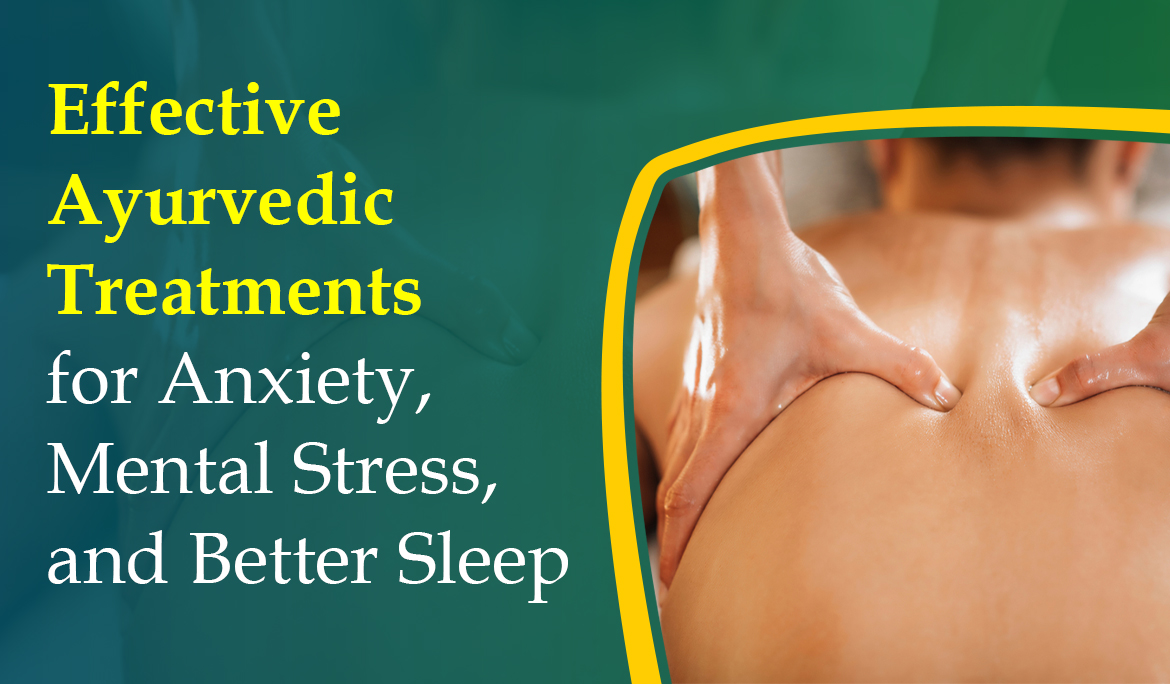In our fast paced modern existence, mental well being can end up on the back burner. Time pressure around the clock – the constant pressure to keep up with time and performance, and to always be interconnected digitally has caused a sharp increase in the number of those suffering from anxiety, chronic stress, and sleep disorders. In a world where people are seeking no long-term natural cures, for me Ayurveda (the Indian science of longevity) is a gentle, holistic approach predominantly behind holding back illness (as well as the ageing process) by rebalancing, not only the body, but also the mind and soul.
Getting to the Root of the Matter: A Whole Body Approach to Anxiety and Insomnia
According to the Ayurvedic tradition, disturbances of the mind, like anxiety and sleeplessness, arise due to an imbalance in the Vata dosha (the energy responsible for movement, not only in the body, but also in thoughts and neural activity). When Vata is provoked by poor lifestyle habits, inconsistent schedule, overstimulation or dietary inadequacy, the result is typically excessive mental chatter, nervousness, and eventually, insomnia.
Professionals in today’s world also include that chronic stress disrupts the functioning of the brain to regulate mood and sleep. Stress increases cortisol, disrupts the circadian rhythm and can lower melatonin – the hormone that helps to bring about sleep.
Sleeping pills and tranquilizers may help, but they can have side effects or be habit-forming. Ayurveda, by contrast, operates from the inside out, addressing imbalances and promoting sustained calm.
Why Can’t You Sleep? (It’s Not Just One Thing)
There are many reasons for not sleeping at night and they often run deeper than having a noisy environment or a lumpy mattress. Consumed vitamin, stress, screen time late at night, drinking too much caffeine, hormone imbalance, poor digestion, unresolved emotions, or a heavy meal eaten late in the evening can all be causal factors.
In Ayurveda, Agni (the digestive fire) is a key to mental clarity and sound sleep. When digestion is weak, it causes Ama (toxins) to accumulate in the body and that interferes not only with the physical body, but also the mental functions, creating an unrestful sleep.
Ayurvedic Medicine for Mind Relaxation
Here are some effective methods and Ayurvedic medicine for mental stress and sleep disorders:
Abhyanga (Warm Oil Massage)
A gentle daily self-massage with warm sesame or Brahmi oil soothes the nervous system, decreases cortisol, and relaxes tense muscles. This ritual helps to ground Vata and will ensure you have a good night’s sleep.
Shirodhara
This is a useful treatment in which warm medicated oil is allowed to flow in a steady stream over the forehead. It is said to relieve anxiety and mental fatigue and it is especially useful for those seeking natural ayurvedic medicine for anxiety and insomnia.
Nasya
Putting a few drops of herbal oils such as anu thailam in the nostril enhances oxygen supply to the brain and regulates blockages in the brain. It even helps people who suffer from insomnia.
Herbs that Heal
- Ashwagandha: A potent adaptogen that supports the body in managing stress.
- Brahmi: For improved mental faculties and a calmer mind.
- Jatamansi: Soothes the nervous system, helps for deeper sleep.
- Tagara: This acts as sedative and is advised as a home ayurvedic medicine for anxiety.
A mild herbal formulation made of these herbs can act as an effective ayurvedic medicine for stress and anxiety that provide long lasting relief without side effects.
Healing requires consistency above all else. Aside from carrying out Ayurvedic treatments, some simple lifestyle modifications can work wonders.
Establish a Sleep Routine: Try to go to bed and wake up at the same time every day – even on weekends.
Digital Detox Before Bed: Swap screen time for journaling, chanting, or reading.
Soothing Evening Drinks: A cup of turmeric or nutmeg-spiked milk also serves as a natural ayurvedic medicine for sound sleep.
Meditation and Pranayama: Deep breathing techniques help to relieve tension and anxiety, and are themselves a stress relief ayurvedic medicine.
Mindful Eating: Eat a light, warm dinner at least two hours before sleeping. Include grounding foods like cooked vegetables and whole grains.
An All-New You: Listen to Your Mind
Today’s world often encourages us to shoosh our thoughts or “push through” stress. But Ayurveda tells us to listen to the signals within. If your mind is agitated, it is in need of stillness. If you are anxious, it is asking for grounding. Everything is rhythm recalling you back to the feel of your body, all the way down to the pulse and blood in your brain until you finally learn to let go, and whoosh, it’s there with you.
When one understands the relationship between body, mind and sleep cycles we can begin rhythmizing our habits to the nature’s rhythm…what Ayurveda calls Dinacharya (daily routine) and Ratricharya (night routine). We give ourselves better mental health when we marshal and align with these natural rhythms.
Mind Deserves Equal Care to the Body
Not infrequently, we do a lot – counting calories, lifting weights, tracking steps. But the mind requires just as much attention. It must rest, reflect and relax. We need to get back to doing what we know provides actual healing – not quick fixes.
So, the next time you’re lying awake at night, or feeling pummeled by mental tension, remember – balance doesn’t come from silencing the mind, but from nourishing it.
Conclusion: Where to Begin?
For a comprehensive place to start on your path to mental peace and sleep that ensures complete comfort and calm, HIIMS Premier in Gurugram offers integrated programs based on Ayurveda and naturopathy. Their custom treatments such as Shirodara, Abhyanga, and herbal remedies are safe and highly effective ayurvedic treatment for anxiety, stress, or insomnia. Visit hiimspremier.com to explore more.
Anxiety and insomnia are not merely conditions; they are canaries. Rather than amplifying the noise and drowning them out with drugs or alcohol, Ayurveda helps us interpret them and gently guides us back to searching for inner peace. The answer is not in simply masking pain – but in understanding the source and in returning to nature and in relearning how to rest, truly rest, our bodies and minds and spirits.













